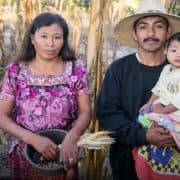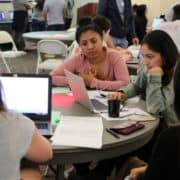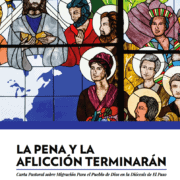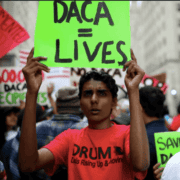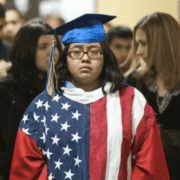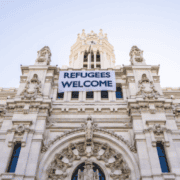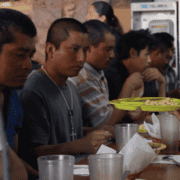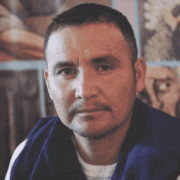BY ISN STAFF | September 27, 2017
On Saturday, September 16, 2017, the Loyola Immigrant Justice Clinic (LIJC) at Loyola Law School in Los Angeles hosted a free public workshop to process DACA renewals, with both students and alumni volunteering at the event.
Sixty-five DACA recipients were served at the event, with approximately forty additional individuals referred to other organizations for support.
Loyola attorneys present included LIJC Co-Directors Marissa Montes ’12 and Emily Robinson ’12, as well as staff attorneys Alejandro Barajas ’15, Yanira Lemus ’15 and Sandra Ruiz ’14.
“The high turnout of applicants and volunteers was truly inspirational,” said alumna and adjunct professor Marissa Montes ’12, co-founder and co-director of the Loyola Immigrant Justice Clinic. “Despite the Administration’s attacks on the immigrant community, I was overwhelmed with hope seeing the outpouring of support we received from our volunteers, students and alumni.”

Loyola Immigrant Justice Clinic staff supervised the event. Pictured: Yanira Lemus, staff attorney; LIJC Co-Director Marissa Montes; Sandra Ruiz, staff attorney; student volunteer Karla Ballesteros; Co-Director Emily Robinson; and staff attorney Alejandro Barajas. All LICJ attorneys are alumni of Loyola Law School, Los Angeles.
The Loyola Immigrant Justice Clinic is the only law school-housed community-based immigration clinic in the United States. The LIJC’s dual-pronged mission is to advance the rights of the indigent immigrant population in East Los Angeles through direct legal services, education and community empowerment, while teaching law students effective legal skills and ethics in a real-world setting. More than 50 students have participated in the LIJC since its 2012 inception, assisting the clinic in conducting more than 10,000 client consultations.

Christian Perez, 30, was one of nearly 100 clients who attended the free DACA renewal event hosted by the Loyola Immigrant Justice Clinic at Loyola Law School, Los Angeles. “Today was really important. I want to get a career instead of a job,” said Perez, who attended with his 3-year-old daughter, Yarelli.
The LIJC has been at the forefront of advocacy for Deferred Action for Childhood Arrivals (DACA), which provides temporary relief to those brought to the U.S. as children meeting certain age, status and education or military service requirements. It has intensified its efforts in the wake of significant changes promised by the Trump Administration, including a recent order rescinding the program.
Since January 2016, the LIJC already has assisted with more than 420 DACA applications and renewals. Now, with an impending Oct. 5, 2017 deadline for DACA recipients to file renewals, the LIJC is training volunteers to help with the additional workload and provide more assistance.
Loyola immigration-law experts have been a key part of the national dialogue on DACA, offering their perspectives to a variety of media outlets in the hope of providing some tangible actions and encouragement to those whose DACA status is in jeopardy.
“It is very important to assess all of your legal options,” LIJC Co-Director Emily Robinson told KABC-TV in an interview, excerpted by NPR. “At this point, when we don’t know who is being prioritized and we’re unsure of enforcement actions, it’s very important to take the time to understand the entire legal landscape of your legal status.”
Professor Kathleen Kim, faculty adviser to Loyola’s Immigrant Advocacy Concentration, helped assess exactly what is at stake for those enrolled in schools. “Depending on their state, students who lose their DACA status are at risk of losing their tuition eligibility,” Kim told PRI’s “The World.” “There are many schools that have proactively worked toward increasing scholarship funds for those and other undocumented students.”

Loyola Immigrant Justice Clinic Ray Chavez reviews a client’s DACA renewal file at the free Sept. 16 DACA renewal clinic at Loyola Law School, Los Angeles.
Elsewhere, LIJC attorneys opined on the impact DACA’s rescission will have on society. “DACA has impacted family stability and building of communities. It has allowed parents to work legally in the U.S. and earn an income in order to provide for their families, which include their own parents, their children and extended family members such as their siblings,” LIJC Co-Director Montes told the San Francisco Chronicle.
Amid last fall’s presidential election, the LIJC began expanding its DACA-specific outreach, deploying its staff attorneys to myriad site visits to explain the intricacies of DACA. Clinic staff attorneys regularly visit campuses like East Los Angeles College to consult with students. Additionally, the LIJC has seen record turnout at its regular intake events at East L.A.’s Homeboy Industries and Dolores Mission Church.

Loyola Law School volunteer attorneys review client files before final processing at the Loyola Immigrant Justice Clinic held on Sept. 16, 2017.
As the need for immigration services escalates, Loyola staff attorneys, professors, and students underscore their pride in Loyola’s commitment to public service. “We are fortunate to be part of Loyola Law School where we are truly trained to be lawyers for others,” said Robinson.
Loyola Marymount University’s President, Timothy Law Snyder, also has come out strongly in support of undocumented students. Snyder has expressed his position publicly via Twitter, in interviews with news media including The Atlantic, and in a community letter where he stated “Since the advent of DACA, we have experienced its profound benefits for our students and its positive impacts on our university and our nation. Dreamers on our campus have been and are exemplary scholars and leaders. Thanks to DACA, these students and alumni have pursued opportunities in business, education, tech, and nonprofit sectors. They contribute actively to our communities and they strengthen our economy. They represent what is best about America, and they are essential to our future.”
Editor’s Note: This piece was originally published as part of the Ignatian Solidarity Network News From the Network series.


